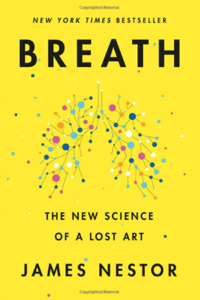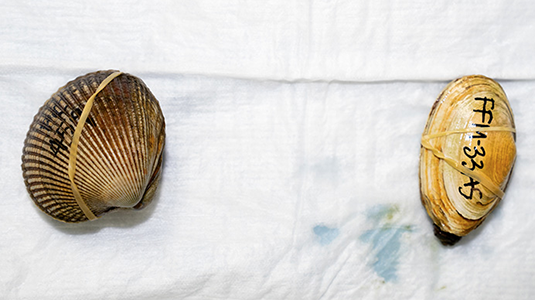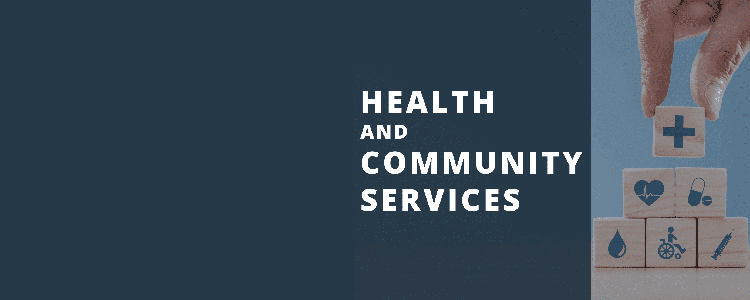||| SUN DAYS ON ORCAS by EDEE KULPER |||
I was constipated most of my young life. I thought it was normal to sit in the bathroom for half an hour every few days, and to have small hemorrhoids protrude on extreme days. It wasn’t until I was in sports in high school that I drank a whole cup of water and realized I had never done that before – not in my entire life. Maybe it’s because I was born into a household of six other people, four of whom were busy teenagers. Perhaps some of my basics were overlooked in all the hubbub.
There were other bodily things too – I had these white things in my tonsils growing up. I wouldn’t notice they were there until I smelled the odor of dying flesh. I grossed out my friends in high school and college every time I “picked my holes,” as I called it, with a flashlight and toothpick. I knew that wasn’t normal, but I thought it was just how my body did things. (I looked them up years later when the internet happened, and they’re called tonsil stones.)
I grew up a mouth breather. My mom always told me not to chew with my mouth open, and she never believed my “excuse” that I couldn’t breathe if I closed it. I ate with my mouth open, slept with my mouth open, and lived every day without the use of my nose for the most part. I couldn’t even smell much. My family loved food and ate meals around the table every night, but I can’t even remember smelling or eating anything before the age of 11. I think food was just a necessity to me. I used to say that if anyone ever put duct tape on my mouth and shoved me into a car trunk, I’d be toast. I couldn’t breathe through my nose. Not a molecule of air.
I loved working outdoors. One of my dreamy jobs was on Catalina Island as a camp counselor. While the kids were out attending open-air biology classes and learning how to SCUBA dive from certified instructors, the counselors had the option of learning to dive as well. For free. I had to pass, opting for windsurfing and snorkeling with orange garibaldis in the clear, green-blue water instead. Diving sounded great, but with my plugged-up nose, I didn’t want to feel iffy about any kind of nasal deficiency underwater. When I became a river guide years later, customers in my boat constantly begged me to flip the boat in Class 4 rapids. That was the last thing I wanted to do. Whenever I was underwater, though I was a competent swimmer, I could not blow air forcefully out of my nose even when I tried. Instead, water would come rushing in and I’d feel I narrowly escaped drowning once on shore. I never quite understood why my nasal anatomy was so limiting. Not to mention how it made me look like a wimp.
Through the years I tried to figure out what was going on. In my 20s, an otolaryngologist put a camera on a long flexible wire up my nose and down my throat, raising his eyebrows when he saw that the back of my throat looked like it was wracked by acid. I hadn’t ever experienced reflux, but having a dry throat and having to clear it all the time were just normal for me. (I used to marvel at how radio deejays never had to clear their throats. They could just keep on talking.) The ENT concluded that I didn’t have a deviated septum, and there wasn’t anything obstructing my nose. But “something” was causing the tissues to constantly be inflamed, like a persistent allergen. But I didn’t have allergies to anything. He suggested I opt for a surgical procedure. When I heard him explain all of the things that could go wrong, like brain damage, I decided I was okay with mouth breathing.
In my 30s I found a naturopath who sold a flower remedy to me for opening my nasal passages. For the first time in my life, I could breathe like other people! It was incredible! I could close my mouth, inhale deeply without any obstruction, and experience the fullness of being human and taking in air. One day, the naturopath’s wife called me out of the blue to tell me that her husband was cheating on her with one of his patients. She was distraught, calling all of his patients to ask them if they would stop seeing him for their ailments. How ironic. The first time I could ever fully breathe in my life, and now it was abruptly over. Bummer.
 Every book you read changes your life in subtle ways, but sometimes one comes along that is wholly life-changing. I think it just happened to me this week. Last week, the subject of my column was Maddie Olson. In number 26 of her list of 27 things about her life, she said that she tapes her mouth shut every night, and so should we. Or we should at least begin by reading the book Breath by James Nestor. Taping my mouth, even for a few minutes, was something I had always thought about. Now I knew I had to do it. I got the book immediately from the library and I’m stunned. I can’t believe how many things are linked to how we breathe. Maddie’s right. You’ve gotta read this book.
Every book you read changes your life in subtle ways, but sometimes one comes along that is wholly life-changing. I think it just happened to me this week. Last week, the subject of my column was Maddie Olson. In number 26 of her list of 27 things about her life, she said that she tapes her mouth shut every night, and so should we. Or we should at least begin by reading the book Breath by James Nestor. Taping my mouth, even for a few minutes, was something I had always thought about. Now I knew I had to do it. I got the book immediately from the library and I’m stunned. I can’t believe how many things are linked to how we breathe. Maddie’s right. You’ve gotta read this book.
It’s the latest fad to have a book about what everyone just has to try, or has to know, or has to do. Like the keys to life are being uncovered one trendy author at a time. This isn’t how I feel about this book. I’ve had too many A-ha! moments to count. So many of the things I had chalked up to being the way my body just does life are being dispelled one paragraph at a time. No, they are all attributable to mouth breathing. You have to read it for yourself.
I think back about my constipation. You lose 40% of your water through mouth breathing. And I wasn’t drinking any water until my early teens to replenish my stores. I think about my extremely crooked teeth, the eight teeth I had removed so they’d all fit, and the orthodontics. According to this book, the mouth does not form correctly for a mouth breather. I think about my throat. Thankfully tonsil stones are a thing of the past, but my throat has always been messed up and I’ve always awakened with a mouth as dry as a desert. Acupuncturists through the years have looked at my tongue and jumped. It never looks right to them, and I bet that’s because it has to recover all day from being dried out all night. It probably doesn’t fit in my mouth properly either. I think about my ribs. Someone once laughed at me when I was lying on a boat in my swimsuit – they thought I was trying to suck in. But my ribs stick straight out; they don’t curve neatly inward. I imagine it’s how I breathe, abruptly and often through my mouth.
In a nutshell, while this book is filled with amazing statistics, stories, experiments, and facts, what it comes back to again and again is basic: nose breathing, inhaling and exhaling slowly and fully, and intentionally exhaling longer than you normally would. You might be interested to read how important carbon dioxide is, not the inhalation of more oxygen.
Day before yesterday, while reading Breath, I decided to be intentional about nose breathing all day long. I didn’t know if it would feel like torture, but I realized from this book that anyone can become a nose breather if they decide to. I was shocked – it wasn’t that hard after getting over the hump of the first five or ten minutes. After almost 49 years of assuming I was locked into mouth breathing, I was dumbfounded. After a few hours, I was doing it without much effort whatsoever.
Yesterday, I taped my mouth for an hour or two while reading the book. It was even easier to breathe with tape holding my mouth together, not harder. Taping turned nose breathing into an unconscious act rather than a conscious aim. I couldn’t believe it.
Last night I was excited to tape my mouth all night. I got in bed with my Scotch tape, cut off a postage-stamp size of it, and stuck it to my closed lips. I felt ready after the success of the previous two days, but I couldn’t fall asleep. I’m the kind of person who falls asleep instantly, so after about 15 minutes, I peeled it off and conked out immediately.
Today, I decided I didn’t care what people would think, I needed to do this, period. I taped my mouth and headed out for my morning walk. I lost myself in my thoughts and showed up for the Farmers’ Market after several miles, amazed that it had been no problem at all. I unpeeled it, excited to try again later. I came home and sent a copy of the book to my brother, who is tied every night to a CPAP machine.
I will keep at it each day and night, excited to see what happens and if there are unexpected ripple effects.
If you are suffering from anything, I would suggest reading this book. Breath is the most basic thing about being alive. If you have trouble sleeping or snoring, suffer from ADD, get sick easily, have asthma or allergies, struggle with weight loss, are high strung, feel mentally foggy or forgetful, want to perform better athletically, don’t have energy, are irregular, or feel that you could be healthier in any way, I recommend reading this book, taping your mouth closed, and giving nose breathing more than a try. And if you see me out there with tape on my lips, now you know why.
**If you are reading theOrcasonian for free, thank your fellow islanders. If you would like to support theOrcasonian CLICK HERE to set your modestly-priced, voluntary subscription. Otherwise, no worries; we’re happy to share with you.**









Thanks for this! As a swimmer in my youth and especially as a Scuba instructor in my young adulthood, I put a great deal of time, energy and thought into the subject of breathing. My exploration of Eastern meditation practices informed my opinions on the power of breath as well. Thankfully, my own “interpenetration with the world” has always been deep and bountiful but I know many people that struggle with this most basic of relationships with the world around us. There really is something to the ubiquitous advice to “Follow the Breath.”
Interesting I must say..I’ve dealt with the tonsil stones and thought it was connected to a diet high in dairy especially ice cream.. when I cut way back on that the stones quit.. other than that I do have sleep issues and have always had problems with swimming and the need for nose plugs lest I end up with a burning sinus load of water which then settled into my ears.. I’ve dealt with “summer allergies” but not hayfever. I’m going to look into this more thanks for the heads up..
Amazing book. I learned so much. Especially about CO2. Makes me wonder about value of ventilators, with high levels of O2, used for Covid, for example. Thanks for sharing, Edee.